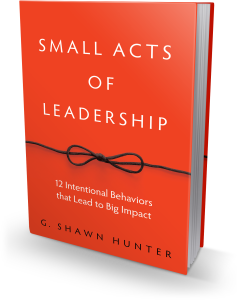Yes, You’re Smart. Don’t Let It Make You Crazy.
You’re smart. It’s normal. Most people think they are better than average. But have you ever ordered the chocolate brownie sundae explosion for dessert, and then when it arrives you realize you’re too full. And then eat it anyway because you paid $12 for it? That’s your “sunk-cost bias.” It’s the same reason a lot of really smart executives spent 27 years and 1.3 billion on the Concorde Jet before finally pulling the plug.
We like to praise smart people. She’s sooo smart. He’s brilliant! But intelligence doesn’t insulate us from our own crazy ideas. And sometimes we use our own smarts to simply reinforce our own biases. And our biases can be pretty loco.
Kary Mullis died recently in August, 2019. He was known as an “untamed genius”. With a brilliant and soaring mind he won the Nobel Prize in 1993 for his work developing a technique called polymerase chain reaction, or PCR, which is the same technology that allows for the reality of Jurassic Park (DNA cloning), designer babies (gene manipulation), predicting Alzheimers (hereditary gene monitoring), and paternity testing.
PCR has numerous applications across a broad number of fields from agriculture to archeology, and was named “one of the most significant scientific inventions of the 20th century.” Clearly Mullis was a heavyweight egghead.
He was also a little nuts. He believed the ozone hole in the atmosphere was an illusion, climate change was a hoax, the HIV virus had nothing to do with AIDS, and astrology was a much better predictor of human behavior than the entire discipline of psychology. He liked to experiment with LSD, and once described his own personal alien encounter. The morning he was awarded the Nobel Prize, he got drunk and went surfing. Clearly, some of his ideas were untethered from reality.
For years we have popularized a myth that sheer intelligence is one of the primary predictors of success. We laud the mercurial genius and praise our kids’ SAT scores. Yet that same intellectual horsepower can handicap rational thinking. Smart people can, of course, do stupid things. Smarter people tend to drink more, for example.
IQ tests measure analytical thinking – the kind of thinking that requires deduction, reasoning, and comprehension. It’s the ability to break down complex problems into simple, solvable elements.
But what about creative intelligence? This is your ability to conjure up a science fiction story about time travel and sorcerers. It’s your ability to imagine alternatives, see through the noise, connect the dots, write compelling ad copy, or perform a jazz solo.
Or what about cultural intelligence? This is our ability to pick up on subtle social cues, be empathetic listeners, and notice cultural differences. Are you confident you know when to shake hands, bow, or kiss on the cheek when you greet someone from another country? Wait, is it a kiss on each cheek or just one? And do you start with the right cheek, or the left? Well, it matters because if you don’t know you might pick the wrong cheek, meet in the middle and…
You know what practical intelligence is. It’s your “genius” neighbor who can’t screw in a lightbulb, or clean his own gutters, or put together an IKEA cabinet.
And what happens when there is no right answer? When the answer isn’t clear. When there are many ways to solve the problem, and the decision is subjective. This requires creative problem-solving, not finding one right answer. Arguably, that genius next door with the 1550 SAT won’t be able to use her analytical intelligence when a complicated issue comes along because there are lots of ways to solve the problem, and a good answer requires thinking laterally.
These kinds of dimensional intelligences are critical to avoiding irrational mind traps. An irrational mind trap is when we get so fixated on a particular notion that we bring our singular analytical intelligence to bear on propping up that crazy idea.
It’s the same reason roughly 5% of us can still argue the moon landing was a hoax, and about 1.5% of us believe the world is flat.
Argue as if you are right, and listen as if you are wrong. When you listen with humility, you’re more likely to hear the other person more clearly, and more likely to allow new ideas in your head.
- ____________________________________________________

In other news, our son and I bicycled across America with two other dads and their teenagers. We published a new book about it called Chasing Dawn. I co-authored the book with my cycling companion, the artist, photographer, and wonderful human jon holloway. Buy a copy. I’ll sign it and send it to your doorstep.



